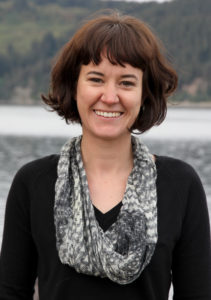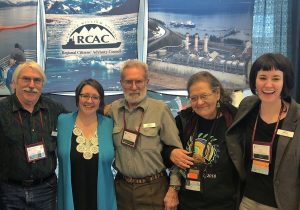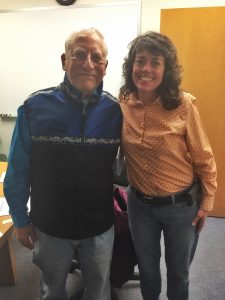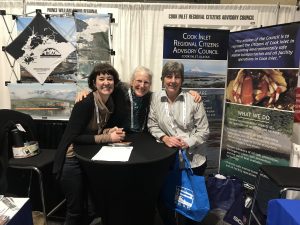By Betsi Oliver
Outreach Coordinator

The third annual Prince William Sound Natural History Symposium, held on May 24, 2021, featured 20 speakers and over 260 participants. The Prince William Sound Stewardship Foundation hosts this annual event. The foundation is a small volunteer-led nonprofit dedicated to keeping Prince William Sound healthy, clean, and wild, for all to enjoy. The Council helped sponsor the event and assisted the planning effort.
Speakers represented tribes, land management agencies, nonprofits, and scientists working in Prince William Sound and the North Gulf of Alaska. Representatives from Chugach Regional Resources Commission started the day with a Land Acknowledgment and the Mayor of Whittier, Dave Dickason, welcomed attendees. Topics ranged from wildlife to glaciers to history. Council volunteer Dave Goldstein presented on weather in Prince William Sound. I provided an introduction to how oil spill response is managed in our region.
The symposium was first conceived in 2019 as a pre-season training for guides and interpreters based out of Whittier. Nobody expected the event, which was held at the Whittier Public Safety Building, to be standing-room-only with over a hundred attendees.
Then, in early 2020, the organizers faced a challenge: cancel, or go virtual? I had already attended a few virtual conferences thrown together hastily in March 2020, so I knew it could be done. I was able to support the transition to an online symposium, preparing speakers and hosts to pull off this “new” thing: a live, public videoconference event. Over 260 people registered that year. It was a success! The virtual platform allowed participation from the entire Prince William Sound region, as well as statewide and beyond. Registration in 2021 matched numbers from 2020.
The future of the symposium is unclear. Presenters, participants, and organizers have all said they want to see it continue. After three years of volunteer efforts, the foundation is seeking financial support to hire a symposium coordinator. As pandemic restrictions lift, many would like to see the event return to Whittier. The possibility of a hybrid event (in person and online) seems to serve both the needs of local guides and interpreters – the original audience – and the broader interest that has developed over two years of online distribution. A dedicated coordinator would be critical to a successful hybrid event, which requires advanced audio-visual technology and greater staff support. The foundation hosts other events, including extensive volunteer efforts, throughout the year.
Recordings from the 2020 and 2021 symposiums are posted on the Prince William Sound Stewardship Foundation’s website.


